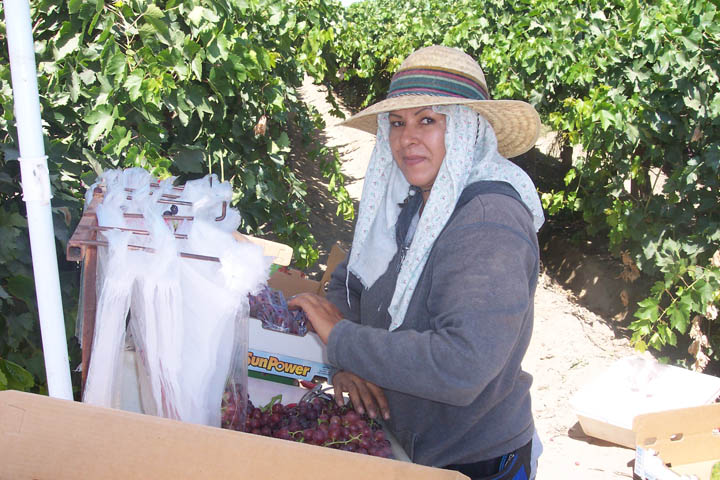
Following CalOSHA rules can save you money
Worker safety is important to every farmer and labor contractor, and violations of labor laws can be expensive.CalOSHA issued 1,100 citations last year for ag labor violations and levied $1.1 million in fines.No. 1 violaton was heat illnesses. 411 citations were issued last year for this violation, costing farmers and labor contractors $386,000.
December 9, 2010

Worker safety is important to every farmer and labor contractor, and violations of labor laws can be expensive in California.
Amy Wolfe, executive director AgSafe, said CalOSHA issued 1,100 citations last year for ag labor violations and levied $1.1 million in fines.
Wolfe told the Sustainability Expo in Monterey, Calif., that many violations are avoidable, if labor laws are followed. AgSafe works to help employers stick to those rules.
AgSafe is a nonprofit organization comprised of individuals, associations and businesses with the shared mission of preventing injuries, illness and fatalities among those working in agriculture. AgSafe’s purpose is to give employers the tools needed to keep employees safe and healthy while continuing to run a profitable, successful business.
AgSafe organizes and promotes educational activities, conferences, regional meetings, applied research, and the collection, interpretation and dissemination of agricultural health, safety and human resource information to enhance the effectiveness of the agricultural safety professional.
Its biggest event of the year is the organization’s annual conference, scheduled for Feb. 22-25 next year at the Hyatt Regency Hotel and Spa on the Old Del Monte Golf Course, Monterey, Calif.
For the Sustainable Expo audience, Wolfe identified what she called the seven safety sins in violations of ag labor laws.
Seven safety sins
No. 1 is heat illnesses. 411 citations were issued last year for this violation, costing farmers and labor contractors $386,000.
California has some of the most stringent heat prevention laws in the nation. When the temperature gets above 85 degrees, enough shade must be provided for 25 percent of the workforce at any one time. And it must be as close as practical to the work site. If requested, shade must be provided year-round.
When the thermometer gets above 95 degrees, employers must observe employees to prevent head illnesses. New employees must be supervised in this scenario, and all workers must be reminded to drink water frequently.
Improper field sanitation is Wolfe’s sin No. 2. Violations of these rules resulted in 299 fines costing growers and contractors $187,000. Field sanitation covers, among other things, adequate portable drinking water and adequate toilet and hand-washing facilities.
The third sin is not implementing an illness and prevention program. This program identifies responsible parties, employee compliance systems, employee communication systems, hazard identification procedures, investigation procedures, hazard correction protocol and employee training. This all should be written out and provided to field supervisors.
This is one of the easiest to comply with, according to Wolfe. But, she added, supervisors in the field must have copies of these. “Don’t let them sit in an office collecting dust.”
The No. 4 sin is not providing first aid kits. She called this a “no brainer,” yet 78 employers were cited and they were fined $25,000.
Nos. 5 and 6 cover proper, written protocol for cleaning and servicing equipment and operating equipment. Failure to comply with providing these written rules cost employers almost $400,000 for more than 100 CalOSHA violations.
No. 7 is failure to report work-related serious injuries or fatalities. This resulted in 28 citations and more than $73,000 in penalties. There is a 24-hour CalOSHA hot line to follow reporting procedures.
About the Author(s)
You May Also Like





